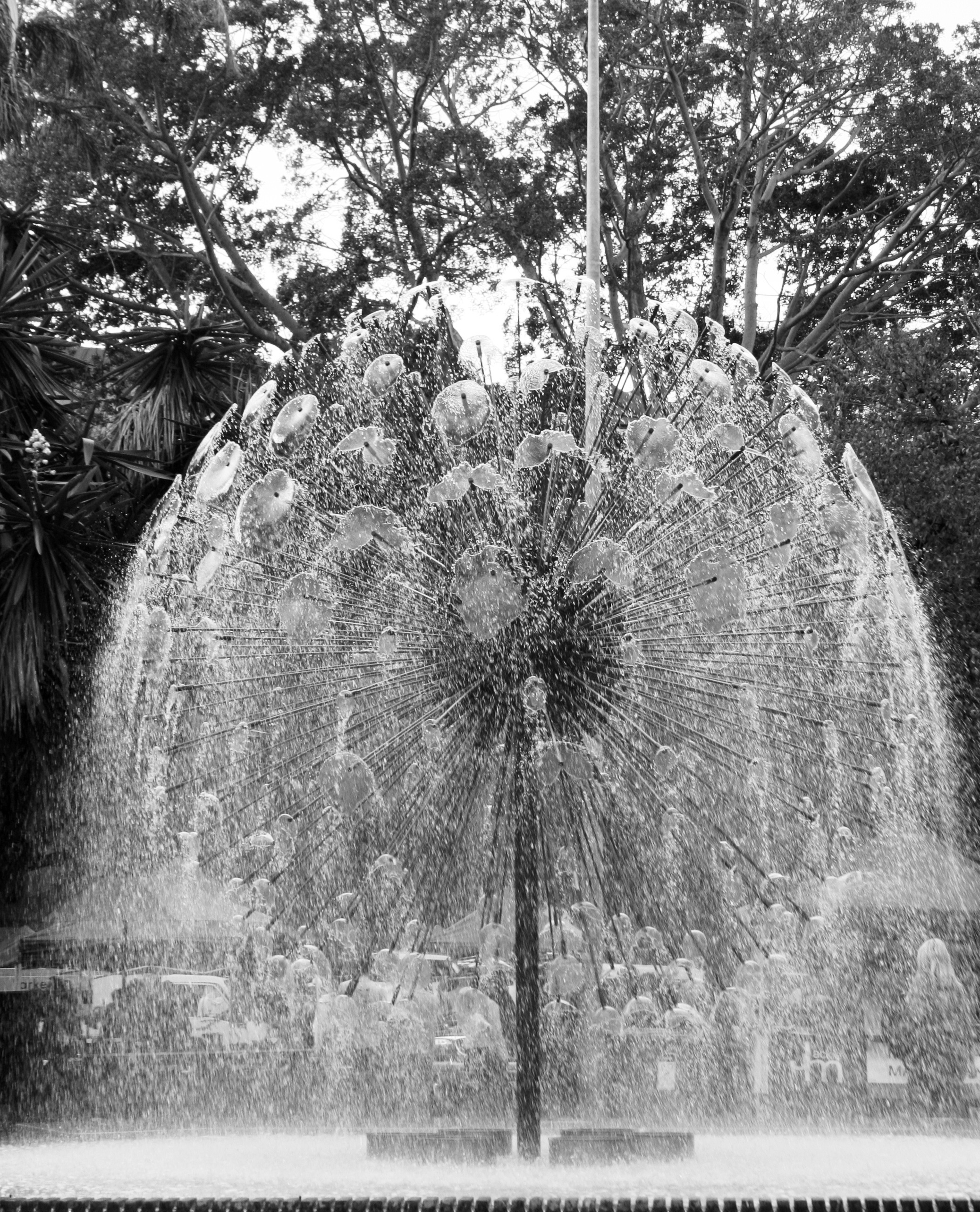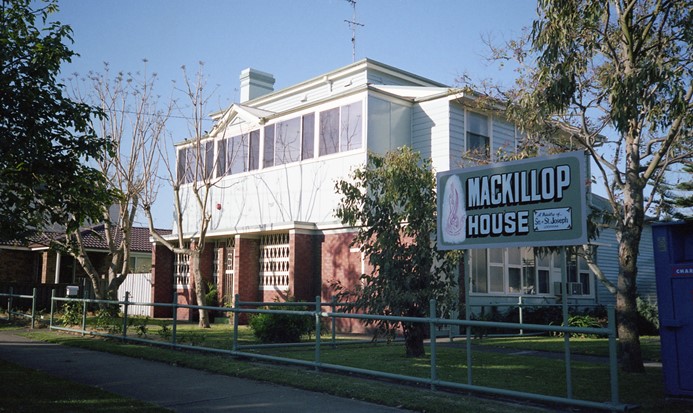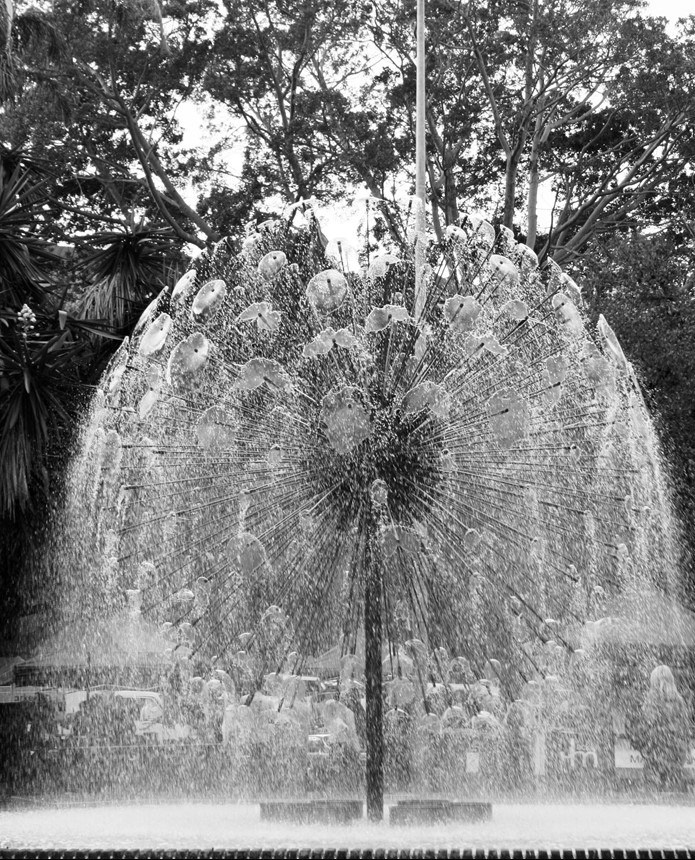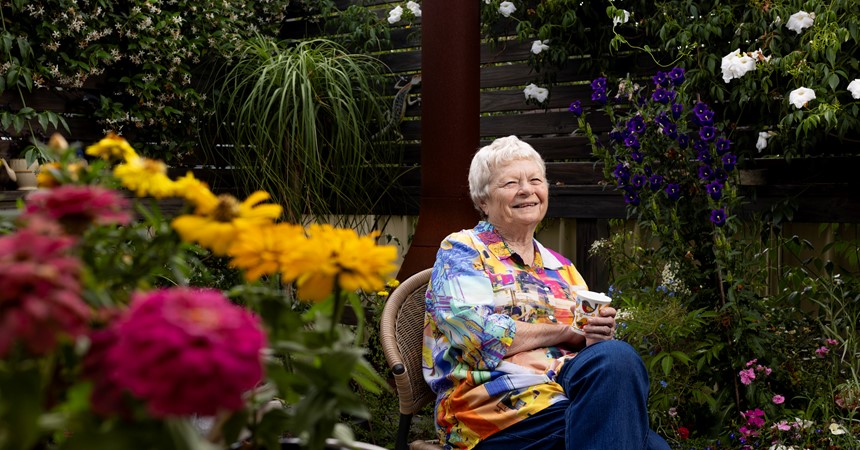She spent her first week simply walking the streets of the Cross, talking to people about their needs and fears.
“I didn’t wear a habit, actually I didn’t even wear a cross. I felt I probably looked like a farmer’s daughter, I certainly didn’t fit in, but I sat on the beautiful fountain at the Cross and different people just started talking to me,” she said.
“I walked the streets, went into bars and discovered another world really. I thought I knew a bit, but quickly realised I knew nothing. It was enlightening.”
Those six nights were all Sister Annie needed. She quickly saw first-hand there was no place to stay for people suffering from AIDS when they left hospital. They were either too sick to return to their families or had been ostracised by society, some hounded by media due to the stigmas of the time.
Sister Annie’s discovery in that first week began a decade long ministry supporting AIDS sufferers by establishing a home for the sick and dying. Above all, the home would offer dignity.
“People said to me, we don’t know how to keep our people safe and that’s what MacKillop House became – a safe place where people were able to live with their fears of dying and feel protected,” she said.
Sister Annie came back to Newcastle and said to her order, the Sisters of St Joseph Lochinvar, “We need to do something, we can do this and make a difference.”
“I asked for a house and a couple of nuns. They looked at me – probably thought how on earth are some nuns going to help the AIDS crisis,” she laughed.
It was this support from the Sisters and a “great element of naivety”, combined with Sister Annie’s drive to make a difference that sparked the establishment of MacKillop House in Carrington in 1989.
“We really believed in it. It had to be done.”
Months of education, training, partnering with local health units, government organisations and other religious orders was required to set up the team with the skills and resources needed.
Sister Annie’s background working as a nurse, combined with her work in death and bereavement pastoral care served her well.
“My nursing training taught me about care of the whole being and perhaps it was there I learned not to be afraid of the pain of the suffering. That doesn’t mean I don’t feel the pain, you just do it and live with the realities every day,” she said.
“When others stand by, I can’t imagine not doing it. I worked in death and dying for 38 years in the end, but it became a lifestyle to respond to a need. I found a privilege in that.”
At its peak in the early 1990s, about 1,000 Australians died from AIDS each year.
Sister Annie said while the numbers were substantial, it was the loss of a friend or family member that made people think differently.
“That’s when we saw a change in attitudes,” she recalled.
Criticised by a frightened and anxious community, there was little acceptance of the people MacKillop House helped and the work that was being done.
“For me, I can’t see the difference between you and I if we had AIDS – it really doesn’t matter. We all have a need and we all have to care for one another,” Sister Annie said.
“When you’re sick you are in a very needy place and so vulnerable. In the 90s, as soon as you were diagnosed with AIDS you knew you were going to die. Many people were very sick but also completely ostracised.”
“In many ways I suppose we cared for the churched and the unchurched in the community,” Sister Annie reflected.
The work was truly living the charism of the Sisters of St Joseph - ‘Never see a need without doing something about it’.
The Sisters and their community partners supported hundreds of people and their families.
“I can remember after we first opened – we heard about a man and his partner living in the bush. We decided to visit him and encourage him to come down to MacKillop House,” she said.
“We went for a long drive and we spoke to them. They travelled down with us and he died at MacKillop House. It sounds strange but we took energy from that. They could have been alone in Woop Woop without support if it weren’t for MacKillop House.”
Sister Annie said tragically many people suffering from AIDS died a horrible death but Mackillop House staff tried to keep them comfortable and give them dignity in their last days.
A decade later, in the year 2000, some of the fear had subsided and needs were changing.
Sister Annie closed her eyes and paused.
“It was difficult closing MacKillop House. There had been a great need but AIDS became HIV and people were living with it. Government funding changed and so we made the decision to close MacKillop House,” she said.
“I think back to all the people who did this work together decades ago. It was a team of passionate people who wanted to make a difference and they did.”
“The impacts were felt not only in our community but across the world. During this time so many of our most creative, artistic people were lost. They were amazing people and our world has suffered from this loss.”
Despite the closure of MacKillop House, a legacy of advocating for others was not lost. Sister Annie is now 75 and as decades have passed she feels our communities can still learn more about acceptance and how to love others.
“During my work with AIDS I really tried to learn not to judge and remind myself that I didn’t have to know everything. People think that knowing everything is power but actually, it is a respect and honour of others’ story that is essential. We must accept each other to live our best lives. The people I worked with in the 90s taught me that, as well as to laugh and to cry. Don’t be afraid to simply ask – what can we do to help you?”



Follow mnnews.today on Facebook.

























































































